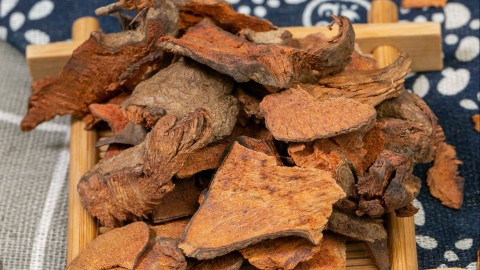What are the functions and effects of Smilax?
Generally, Jingangteng (Rhizoma Smilacis Glabrae) is the dried rhizome of the plant Smilax glabra of the Liliaceae family. Jingangteng has various functions and therapeutic effects, including dispelling wind and eliminating dampness, reducing swelling and relieving pain, clearing heat and detoxifying, promoting diuresis and removing turbidity, and antibacterial and anti-inflammatory effects. The specific applications are as follows:

1. Dispelling Wind and Eliminating Dampness
Jingangteng is mild in nature and effectively dispels wind and dampness. It is suitable for rheumatic impediment syndromes such as rheumatoid arthritis and rheumatic arthritis, helping to alleviate redness, swelling, and pain in the joints and improve joint mobility. Additionally, it provides significant relief for symptoms such as low back and leg pain and muscular soreness.
2. Reducing Swelling and Relieving Pain
Jingangteng has the effect of reducing swelling and relieving pain. It can be used to treat localized swelling and pain caused by sprains and contusions, promoting blood circulation in the injured area, alleviating bruising and swelling, accelerating tissue repair, and thereby relieving pain.
3. Clearing Heat and Detoxifying
Jingangteng can clear heat and detoxify and is indicated for treating conditions caused by excessive heat-toxin, such as abscesses, ulcers, and sore throat. It helps reduce inflammation and promotes the healing of ulcers.
4. Promoting Diuresis and Removing Turbidity
Jingangteng can regulate the body's fluid metabolism and remove dampness and turbid fluids. It is effective in improving lower jiao damp-heat conditions in women, such as abnormal vaginal discharge characterized by excessive volume and thick consistency, helping to restore normal physiological function.
5. Antibacterial and Anti-inflammatory Effects
Jingangteng has antibacterial and anti-inflammatory properties and can be used to treat skin inflammations and ulcers. Moreover, it can effectively eliminate fluid accumulation in the posterior uterine cul-de-sac caused by pelvic inflammatory exudation and promote the absorption and dissipation of inflammatory masses. Therefore, it is commonly used in clinical practice for treating gynecological conditions such as pelvic inflammatory disease and adnexitis.
When using Jingangteng, it is important to follow medical advice and guidance to ensure safe and effective medication. Additionally, special populations such as pregnant women, lactating women, and individuals with allergic constitutions should use Jingangteng cautiously to avoid adverse reactions. Furthermore, Jingangteng may cause gastrointestinal reactions such as nausea, vomiting, loss of appetite, and diarrhea; therefore, individuals with gastrointestinal discomfort should avoid its use or take it in small amounts after meals.





